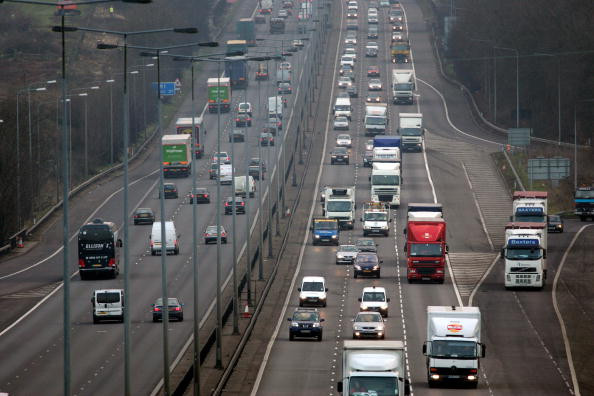Travelling for work 'is work' European Court rules

Thousands of British businesses could be forced to change their working arrangements following a significant ruling from the European Court of Justice (ECJ) on travelling hours. The highest court in the European Union ruled that workers without a fixed office who travel to appointments should have that time included as part of their working hours.
While many employers have not considered this time as work, firms who employ sales representatives or care workers, among many other professions, could now be in breach of European Union time regulations. The ruling does not affect people's daily commute to their normal place of work.
Thousands of British companies will now have to make changes, according to Chris Tutton, an employment partner at law firm Irwin Mitchell. "This ruling will have significant implications for companies that employ mobile workers who spend a lot of their time travelling to different appointments," he said.
"Unless they adjust working hours or ask employees to opt out of the 48-hour working week, employees could quickly exceed the number of hours they are legally allowed to work. Bosses could therefore soon find that they are operating illegally and at risk of facing costly claims against them," he continued.
An ongoing legal case in Spain involving a security systems company called Tyco prompted the ECJ's ruling.
After the company shut its regional offices in 2011, employees had to travel varying distances before their first appointment. Although they used company vehicles to travel Tyco did not treat the journey to their first appointment of the day, or the journey from the last assignment to home, as working time,
Instead they regarded this travel time as "rest time" under the Working Time Directive.
However, the ECJ ruled that this travelling "constitutes working time within the meaning of the directive".
"The Court considers workers in such a situation to be carrying out their activity or duties over the whole duration of those journeys," they said.
The court said its judgement was about protecting the "health and safety" of workers as set out in the European Union's working time directive.
It is designed to protect workers from exploitation by employers, and lays down regulations on matters such as how long employees work, how many breaks they have and how much holiday they are entitled to.
One of its main goals is to ensure that no employee in the EU is obliged to work more than an average of 48 hours a week.
The ruling was welcomed by the Trade Union Congress general secretary Frances O'Grady, who called it "sensible."
"Many bosses are already fair-minded about travel time for journeys to customers," he said. "But this sensible ruling will prevent unscrupulous employers opening up a loophole to force some staff to work upwards of 60 hours a week."
It is now up to the government to "reach a robust and effective definition of the 'normal workplace' so that travel to infrequently-visited client sites is covered, not ordinary commutes," according to Neil Carberry, the Confederation of British Industry's director for employment and skills.
"Given that this ruling extends working time, it again emphasises that the voluntary individual opt-out from working time rules is a vital part of ensuring the system works in the UK," he said. "We want to see the opt-out protected."
The government will also be "under pressure by unions and workers in relation to issues surrounding the National Minimum Wage Regulations to require employers to pay for this time," according to Irwin Mitchell's Chris Tutton.
"It will be difficult for the government to sustain an argument that time that is deemed to form part of a worker's hours should not be paid for and if employers are required to pay for this, it could dramatically increase the payroll costs of businesses who employ low paid staff," he said.
© Copyright IBTimes 2025. All rights reserved.





















